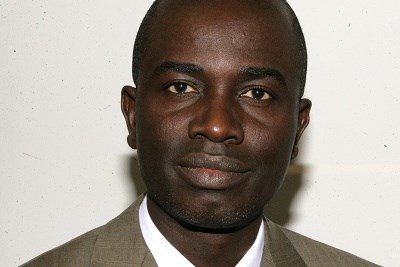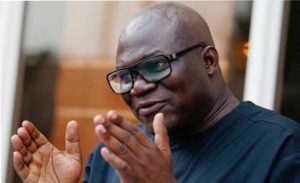Last Thursday, Information and Culture Minister, Alhaji Lai Mohammed responded to an article in The Economist, ‘Insurgency, secessionism and banditry threaten Nigeria.’ Quite naturally, the minister faulted a number of assertions in the London-based magazine. That of course is his job, and he did it well. But his attempt to make light of the collection of taxes by bandits in Northwest communities is concerning. Here is what the minister said: “Do you know how many places in this country where area boys collect taxes? And there is no terrorism or banditry there. I don’t want to mention names. In many of our cities, they carve out their own territory. So, it is not indicative that the bandits have taken over. No. I know many areas in Nigeria both in the South and the North where these kinds of things happen. So, it is not the same thing.”
The minister can make his point that bandits have not taken over the country without the allusion he offered. But it is also typical. Rather than look for solutions to mounting security challenges, officials of this administration simply invent convenient excuses. And nobody seems more adept at what is now glibly referred to as ‘Whataboutery’—a Soviet-era propaganda tactic that seeks to draw attention away from the issue under discourse by pointing out a similar challenge elsewhere—than the Information and Culture Minister. That is how he would compare ‘Area Boys’ with bandits who are not only killing, maiming, raping and kidnapping hundreds of people for ransom but have made going to school a high-risk enterprise in many states in the North after forcing people to abandon their farms.
From Zamfara to Katsina, Kaduna and Sokoto States in the Northwest, as well as Niger State in the Northcentral, many local governments are home to rural dwellers who regularly pay protection money to bandits just to stay alive. That is the issue the federal government must deal with, especially given Tuesday’s raid at the University of Abuja staff quarters by bandits who took away a Professor and members of his family.
In its latest report, the ‘Nextier SPD Violent Conflict Database’ reveals that in one calendar year (September 2020 to September 2021), “Nigeria recorded 890 incidents of violent conflicts resulting in 3,787 deaths, 340 injured persons, and 2,542 kidnapped persons. 90.3 percent of the fatalities were civilians, while the balance of 9.7 percent were security agents.” These violent eruptions were ranked into such categories as Banditry, Farmer-herder conflicts, Terrorism, Extra-judicial killings, Cultism, Armed robbery, Civil unrest, Communal clashes, Group conflict, and Maritime piracy. “When ranked by the total number of victims, which is calculated as the number of casualties, injured and kidnapped, banditry is still the first with 78 percent of the total victims,” according to Nextier Founding Partner, Patrick Okigbo IIII in his paper, ‘Stemming the Tears’ presented at last week’s 27th edition of the Nigeria Economic Summit.
At a forum on insecurity in Yola, Adamawa State, also last week, former National Health Insurance Scheme (NHIS) Executive Secretary, Prof. Usman Yusuf corroborated that finding. “I am from Katsina (State) where the president comes from. Before this government came, we did not know what IDPs look like (but) now, a third of my state, the president’s state, is under siege by bandits. Our capital city is filling up with IDPs, we never saw that. The president doesn’t call to commiserate with us, (he) doesn’t speak about banditry. Listen to him each time he talks about insecurity; he talks about Boko Haram. Banditry is more difficult and more lethal than Boko Haram, and I will tell you why. Boko Haram (members are) located in one place—the northeast. Bandits are all over this country.” And then the clincher: “We are not going to wait for any government that lies with propaganda and say, ‘oh they have been decimated’; ‘we are going to take the war to them’—all that nonsense.”
Perhaps the Information and Culture Minister should listen more to his colleague at the Ministry of Interior. On Tuesday, Ogbeni Rauf Aregbesola said that as terrorism, banditry and other serious cross border crimes continue to proliferate in the country, there should be concerted efforts to counter them. Particularly noteworthy was Aregbesola’s summation that while the security agencies in Nigeria are still operating an 18th century crime prevention model, the sundry criminal cartels that they contend against have already adopted 22nd century strategies for their nefarious activities.
It is bad that the Minister of Information and Culture sees little wrong in a situation in which criminals create fiefdoms for themselves by collecting taxes from rural dwellers. Worse is that he is unwittingly admitting to the growing number of ungoverned spaces across the country where outlaws have taken over. The concern here is the danger of ‘Whataboutism’ when dealing with security challenges. Politicians who deploy it, according to Larry Ruark, in his ‘Sun Chronicle’ column on Tuesday, do so “to escape accountability, to justify what appears to be an unwise or illegal action, or to divert attention away from unpleasant events, actions, speeches or opinions that cannot be logically or morally defended.”
I share the view that the international media have lately been hard on our military without considering the number of their personnel, the meagre resources at their disposal and the fact that the internal security role for which they are saddled is constitutionally that of the police. With the proposed capital budget of N28 billion in 2022 for the entire Nigerian army (an amount not up to what some federal government agencies vote for miscellaneous expenses) the Chief of Army Staff, Lt General Farouk Yahaya, yesterday lamented at the senate on lack of adequate financial investment in the military. The minister is therefore right to defend our military from unfair attacks. But to compare bandits with opportunistic Lagos touts is to take ‘Whataboutism’ too far.

To borrow a common Yoruba parlance, nobody can call a dog a monkey for some of us. Bandits are not area boys. They are mass murderers who kill, maim, rape and kidnap. What Alhaji Lai may not appreciate is that when we promote this kind of narrative, according to a recent editorial in the London Observer regarding the danger of false equivalencies, “We effectively promote the tolerance of intolerance, allowing fringe groups that are clearly harmful to compare their platforms with those that are reasonable.”
As I argued in my column last week on ‘Banditr-ocrazy’, it is the defensive way operatives of this government speak about bandits that have made many Nigerians suspicious of their actual endgame. That is perhaps what pushed the two chambers of the National Assembly into passing separate resolutions urging the president to designate outlaws as terrorists. But following the Area Boys comparison, the former Senator representing Kaduna North, Shehu Sani, on Monday offered the Information and Culture Minister another idea. He cynically suggested on his Twitter handle that the bandits simply be designated as ‘federal civil servants’!
NOTE: Three weeks ago, I began a series based on the report of a study conducted by the late President Umaru Musa Yar’Adua on subsidies in five critical sectors of our national life (power, education, health, agriculture, and petroleum). Although I am yet to run the aspects touching on agriculture and petroleum in the 2008 report, I am taking a pause today for the intervention by my friend, Bolaji Abdullahi, on options available for funding tertiary education in Nigeria. The conversation continues.


















